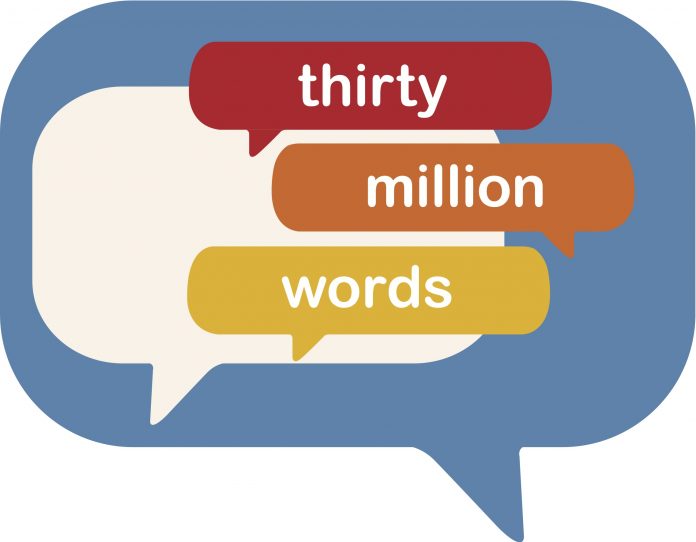
I saw a headline that said a child needs to have heard 30 million words by the time he is three years old to have the best chance of success in reading, math and social skills for the rest of his life. Really? I wanted to know more so I kept on reading. The author of the book, Thirty Million Words is a doctor who performs cochlear implants on infants who cannot hear. The implant miraculously allows the child to hear through an electronic processor so he will develop language like all infants. She noticed that two of her patients who received their implants at the same age and had basically the same profile were far apart in their language progression. One child was reading on grade level in the third grade, but the other child was still struggling to read at a first-grade level in the third grade. Dr Dana Suskind began extensive research to understand why. The results of her studies ultimately led to the formation of the TMW Initiative designed to help parents “feed” their babies’ and toddlers’ brains during those most important
0-3 years. The book is fascinating, but if you don’t have time to read the whole book, take a look at some websites I found that give parents of young children tips on how to “program” their child’s brain!
-
Why 30 million words?
I love this site because it does a good job of summarizing the key points in the book Thirty Million Words. The author of this site says parent talk helps build all aspects of a child’s success, and “you don’t have to buy any technology or toys!” There are helpful tips about how to talk to your infant and more. Check it out with a click. CLICK HERE
-
Talk with your baby
Did you know that the human brain triples in size in the first three years of life? A baby’s brain develops as the baby interacts with the world. This site says that lots of talking with children in the first three years of their lives, builds the brain architecture that will be needed later to support reading and thinking skills. Lots of talk also builds healthy relationships and social skills. There is good information at this website. Click and see! CLICK HERE
-
Television and babies
Babies and toddlers are social learners. Even a newborn can recognize faces and voices and is sensitive to social cues such as eye contact and facial expressions. All these cues help the baby understand his environment. In other words, babies learn better from people than from pictures or television. This article from the Urban Child Institute has great information and explanations about babies and television. Click here to find the complete article. CLICK HERE






